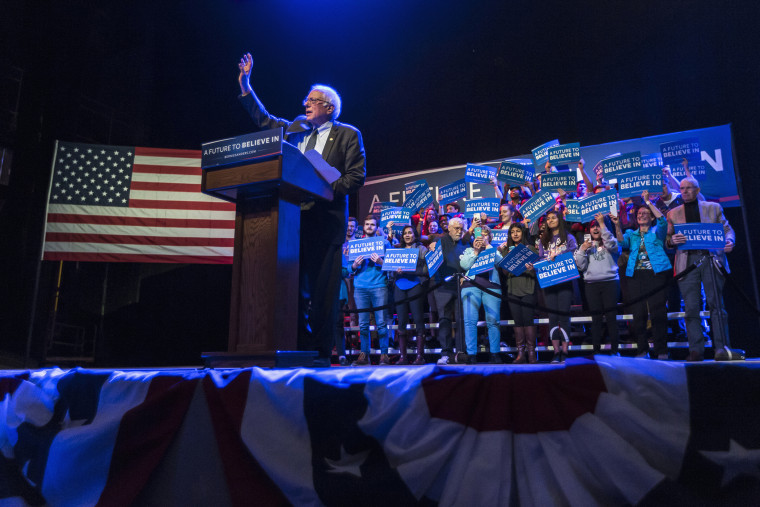On the campaign trail the other day, Donald Trump suggested Bernie Sanders is getting a raw deal. "He wins and wins and wins, and I hear he doesn't have a chance?" an incredulous Trump asked his audience. "This is a crooked system, folks. I couldn't care less, but he wins, like me."
The same day, the New York Times published a puzzling paragraph:
Backers of Senator Bernie Sanders, bewildered at why he keeps winning states but cannot seem to cut into Hillary Clinton's delegate count because of her overwhelming lead with "superdelegates," have used Reddit and Twitter to start an aggressive pressure campaign to flip votes.
There appears to be some confusion about the state of the race. Sanders has fared well, and won several contests in a row, but at least at this stage in the process, Clinton has won more pledged delegates, more votes, and more states. Just as important is the fact that Clinton has actually won several states with larger populations by wide margins, which explains her significant advantage in the metric that actually decides who wins the presidential nomination.
The role of superdelegates is interesting, and arguably worth keeping an eye on, but they're not the Sanders campaign's principal problem. If we were to rank the key hurdles standing between the senator and his goal, superdelegates would actually be fairly low on the list.
Which is why it's all the more curious that the Washington Post reports that some Sanders boosters have been courting superdelegates so aggressively that some are starting to make claims of "harassment."
Among those efforts is a website created last week under the name Superdelegate Hit List, providing phone numbers and addresses for superdelegates and encouraging users to submit further contact information, presumably to help advocates pressure them. Site creator Spencer Thayer, a Chicago activist, described the goal this way in a Twitter message: "So who wants to help start ... a new website aimed at harassing Democratic Superdelegates?"
I can imagine a situation in which Sanders was narrowly leading the race for the nomination, edging Clinton among pledged delegates and votes. That's not an accurate reflection of what's actually happening, but I'm describing a hypothetical scenario. And in this hypothetical scenario, let's say Sanders was narrowly leading the race, but he hadn't locked down the majority he needed.
At that point, the superdelegates would be of critical importance. These Democratic officials would have the power -- again, in this imaginary situation -- to either follow the will of the voters who cast ballots in primaries and caucuses, or they could exercise their own judgment. Their collective decision would decide the outcome of the entire race.
Given those conditions, lobbying superdelegates would make a lot of sense. If party officials were prepared to elevate Clinton over Sanders, despite Sanders' lead among pledged delegates and raw vote totals, an aggressive messaging campaign would be the obvious next move.
But this hypothetical situation is actually the opposite of the currently unfolding circumstances. When the New York Times says Sanders backers believe Clinton is well positioned to prevail "because of her overwhelming lead with 'superdelegates,'" that's not quite right. Sanders is, to be sure, trailing badly among superdelegates, but even if these party leaders are removed from the picture altogether, the Vermont senator is nevertheless facing a serious deficit among pledged delegates.
Now, if Sanders' supporters are leaning on superdelegates, telling them to ignore, and ultimately override, the results of the primaries and caucuses, that would at least make tactical sense (though it probably won't work as a political strategy). But to see superdelegates as the main obstacle between the senator and the nomination is incorrect.
My point isn't to criticize spirited activism. What matters here is the best use of these activists' time, and pressuring superdelegates is the wrong solution to the wrong problem.
